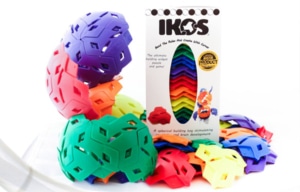While patents, copyrights, and trademarks are sometimes the most well-known forms of intellectual property, trade secrets often fly under the radar. In general, a trade secret is any kind of information that provides a business with a competitive advantage. These intellectual property rights are pieces of confidential information that can be sold or licensed and can encompass a wide range of information. From recipes and customer lists to marketing plans and pricing strategies, there is an abundance of information that falls under the trade secret category.
What qualifies as a trade secret?
According to the World Intellectual Property Organization, to qualify as a trade secret, the information must reach these requirements:
- Commercially valuable, giving a competitive advantage
- Be known only to a limited number of individuals
- Be subject to reasonable steps taken by the rightful holder of the information
How can a trade secret be protected?
There are many preventative steps companies can take to protect their trade secrets from theft or misappropriation such as Non-Disclosure Agreements or Non-Compete Agreements. Another commonly implemented strategy is to train employees on the importance of trade secret protection and the consequences of disclosing the protected information.
One of the largest trade secrets in the world is the Coca-Cola recipe, made from a secret mixture of the stimulant coca leaf and African kola nuts, which contain caffeine. Don’t worry, the universally-loved soda recipe is still kept safe, although, in 2021, a former Coca-Cola employee was convicted of trade secret theft related to BPA-free coatings that line the soda cans to retain flavor. Dr. Xiaorong You was convicted of selling this Coca-Cola trade secret to the Chinese Government. The Indictment alleged that the trade secret information cost almost $120 million to develop.
After uploading multiple trade secret documents to her Google Drive, Dr. You was arrested on February 14, 2019, and her trial began in April 2021. According to prosecutors, Dr. You had plans to share this information with the Chinese government to start her own BPA-free coating firm. The jury convicted Dr. You of possession of stolen trade secrets, economic espionage, and wire fraud. This Coca-Cola chemist and former employee is now facing 14 years in prison for trade secret theft.
What makes trade secrets distinctively important?
Something unique about trade secrets is their longevity. They have the ability to last as long as they are kept secret! With this, there is no registration process or costs, unlike patents or trademark registration which are time-consuming and sometimes expensive. Trade secrets have the ability to give a competitive advantage, no matter the size of the company.
Trade secrets are a valuable form of intellectual property and have the potential to give companies a significant advantage, and this could apply to your business. By understanding what trade secrets are and how they can be protected, you can ensure that your company remains competitive by safeguarding important information.
If you have questions regarding trade secrets within your organization, contact Martin IP Law Group. Remember, it’s always best to prevent damage rather than reverse it, so protect your intellectual assets today! Our flat-fee consultation is a great place to start.



